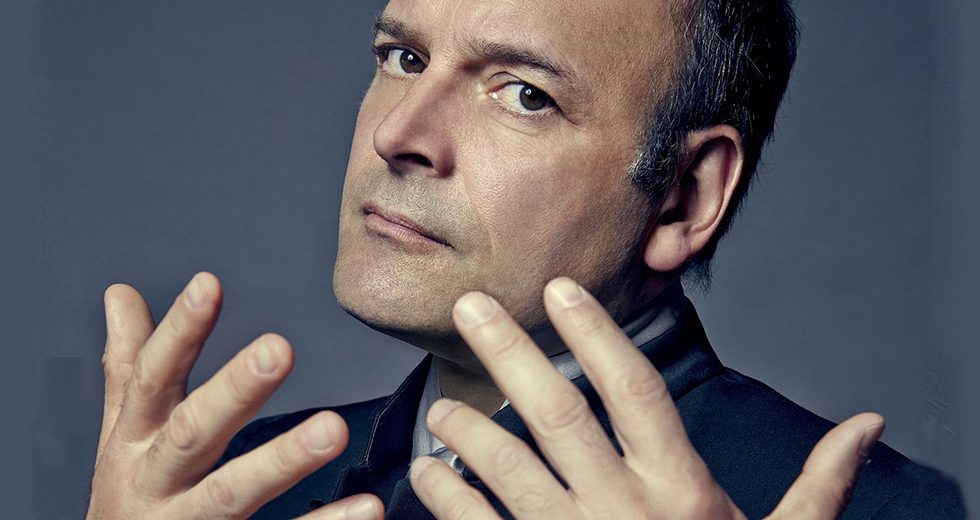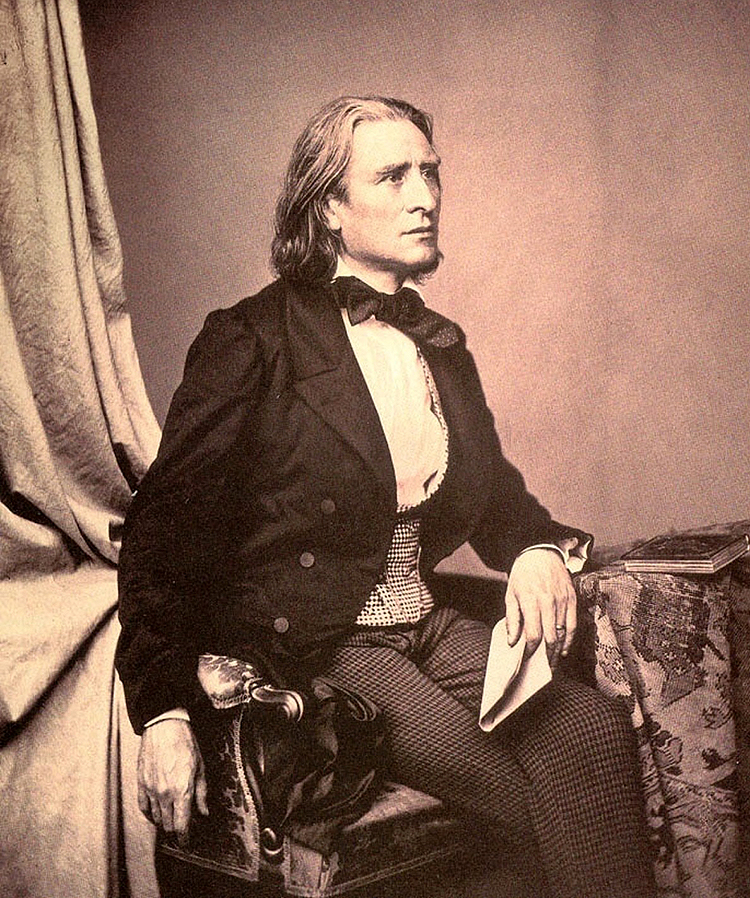
French-Canadian pianist Louis Lortie has been a devotee of the music of Franz Liszt for nearly his entire career. During a summer season in the 1990s, he went so far as to play all of the composer’s works for piano and orchestra — a sizable body of music — with Charles Dutoit and the Montreal Symphony. “I’ve always played Liszt’s music by will and by accident as well,” he said.
Lortie has a special fondness for Liszt’s Années de pèlerinage (Years of Pilgrimage), a set of three suites derived in part from the composer’s first piano cycle, Album d’un voyageur (Album of a Voyager). The first two books — Première année: Suisse (First Year: Switzerland) and Deuxième année: Italie (Second Year: Italy) — were published in 1855 and 1858, respectively. The third, Troisième année (Third Year), written in 1867-77 and published in 1883, is an important example of the composer’s later style, which was less about virtuosity and more about harmonic experimentation.

Franz Liszt in 1858. | Photo: Wikimedia
For his Oct. 8 recital at Orchestra Hall, which opens the 2017-18 season of the Symphony Center Presents Piano Series, Lortie will perform the first two books of the cycle. “I’m not doing the [Third Year], because I think they thought the concert would be too long,” he said. “If you play the three books, it’s almost like going to opera. It’s a three-hour piano recital, which is very rare.”
The first two books are the most accessible, he believes, and display the compositional style for which Liszt is best known. The third book was written after the composer joined the Third Order of St. Francis, a Catholic religious order, and he was often called Ábbe Liszt. At that time, Lortie pointed out, he was no longer a touring virtuoso and was in a different frame of mind. “So it’s more reflective music,” he said. “You could say almost music of the future, because he was experimenting.”
Lortie put particular emphasis on Années de pèlerinage in 2011, the bicentennial of Liszt’s birth, including a complete performance at New York’s Carnegie Hall. “Mr. Lortie played the nearly three-hour work with tireless elegance, precision and flexibility,” wrote music critic Zachary Woolfe in the New York Times. “He brought thunder to Liszt’s explosions and breathtaking delicacy to the filigree work at the top of the piano’s range.” That same year, Lortie released a set of the complete suites on the Chandos label, for which he has made more than 45 recordings since 1986 — an extraordinarily long relationship in an industry known for its ups and downs.
“It’s pretty much his best big cycle for piano,” Lortie said of Années de pèlerinage. “It’s seminal. It had so much influence. There’s so much of all the styles that he covered, and it’s so complete when you play that music. The problem with Liszt is that he went in so many directions. There’s Liszt the virtuoso, there’s Liszt the Germanic composer, there’s Liszt the Hungarian, and there’s Liszt the French composer, and somehow, in these books, you have a little bit of all this. Also, it’s just incredibly Romantic in the sense that it’s all influenced by the poetry and literature that he was reading and by the travels that he was doing. That’s what it is about. It’s about discovery while traveling through Switzerland and Italy with his lover.”
Lortie plays this set of suites regularly, and he never tires of it. “When you have a great programs like this, great cycles, they just grow,” he said. “If you set them aside, it takes a long, long time to relearn the notes. And now, because I play them very, very frequently, it’s great, because I don’t have to think so much about relearning the notes. I’m just working on the concept, and it’s nice to have them under the fingers, so to speak, and have your own evolution with the music.”
TOP: Louis Lortie will open the SCP Piano Series with a recital Oct. 8 featuring Liszt’s Années de pèlerinage. | Photo: Elias/Sedly Cramer Artists